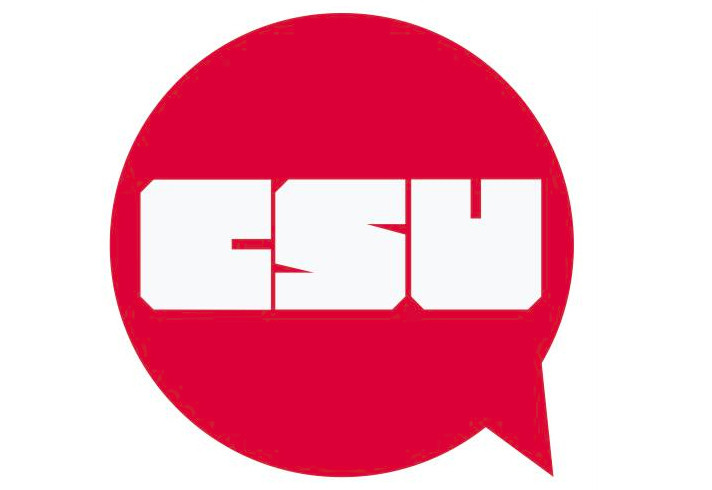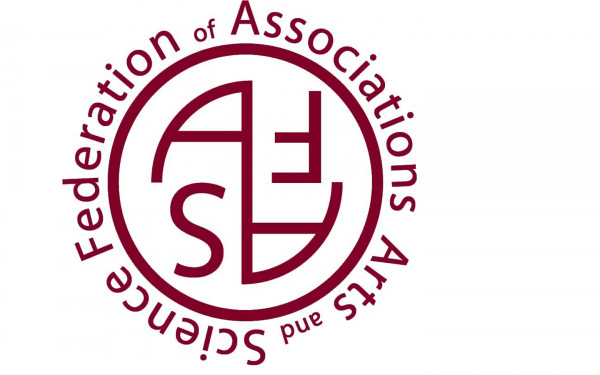Old Problems, New Term
Concordia Student Union Looks To Improve From Its Predecessors
The books of a student union are harder to balance than a checkbook. For one, they’re a lot bigger.
With two then-executives of the Concordia Student Union asked to resign in April for financial malfeasance—and a current executive nearly impeached by their faculty association for their involvement—VP Finance Scott Carr says he is spending a lot of time making things more transparent.
Since entering CSU politics as a candidate last February, Carr has maintained the student union’s brand and finances were in need of an overhaul.
“If there is a common theme in the CSU, I would have to say a lack of professionalism and organization,” he wrote in his executive report for June.
Despite a large amount of his time being spent overseeing the student union’s audit by Deloitte S.E.N.C.R.L., Carr says he is making progress.
“It’s definitely been an interesting few weeks,” he told The Link. “It’s going to require a lot of hard work this year to make sure we get on track and organize things in the best way.”
Some structuring is already in place. The preliminary budget for the 2013-2014 academic year included new budget lines, keeping miscellaneous expenses like local travel costs from being rolled up into one expense.
And unlike years prior, the summer orientation budget has been fixed at $155,000 and won’t be broken, according to Carr. He says he has “factored in” $75,000 for a big-name headliner during the CSU’s major party week, but as for who that could be, he “can’t give away all the marketing yet.”
But over-budget orientations are just the tip of the iceberg for a student union routinely faced with criticisms of fiscal mismanagement.
All in the Past
On April 10, then-VPs Finance and External Keny Toto and Simon-Pierre Lauzon were asked to resign by council with less than 60 days until the end of their mandate.
Council voted for the resignations after an extra $19,100 was allocated to the Arts and Science Federation of Associations’ ASFA Talks 2013 speaker series in March.
The funds were used to secure Jeff Rubin, the former chief economist at CIBC World Markets, as a keynote speaker.
Neither Toto or Lauzon actually stepped down, however. In an interview with The Link, Lauzon said he did not resign because “specifically, I didn’t have to.”
Under CSU bylaw 10.3, an executive may be removed from office following a two-thirds majority vote by council, but an official notice—signed by at least 10 councillors and delivered to the president—must precede it.
The vote by council, however, was only a request for resignation.
“As far as I’m concerned, they could have done a motion for me to stop drinking milk in the morning and it would have been as powerful,” said Lauzon.
Lauzon maintained both before and after the vote to request his resignation that he was acting in good faith when he combined unused funds from other budget lines to help pay for ASFA Talks.
“The only purpose that they achieved is to sully my name in public and they achieved nothing else,” he said. “This whole manoeuvre was really to the detriment of the CSU as a whole and that’s another example, in my opinion, of how council was totally incompetent that year.
“They only thought about their own personal emotions and frustrations as opposed to the well-being and interests of the CSU as an organization like they’re supposed to do.”
To Nick Cuillerier, chairperson of the CSU judicial board, the former council’s decision was merely a symbolic gesture.
“It’s an interesting grey zone, because it is not a part of the removal process of bylaw 10.3,” he said. “They just sort of expressed their displeasure at the situation and asked the individuals to remove themselves gracefully instead of being forcefully removed.”
“As far as I’m concerned, they could have done a motion for me to stop drinking milk in the morning and it would have been as powerful.”
— Former VP External Simon-Pierre Lauzon
This Year’s Connection
Toto and Lauzon were not the only student politicians who came close to losing their jobs. A week before Toto and Lauzon were asked to resign, three ASFA councilors sought to impeach the federation’s former president: Caroline Bourbonnière, the CSU’s current VP External.
At a meeting on April 5, 55 per cent of ASFA council voted to impeach Bourbonnière, who was also serving as an arts and science representative on CSU council at the time.
Unlike the CSU council’s vote against Toto and Lauzon, Bourbonnière would have been forced to resign if the vote carried. ASFA bylaw 143 requires a vote of two thirds or more to remove an ASFA executive from office.
Bourbonnière was also motioned by ASFA council in May to give up her entire $1,500 end-of-year bonus so it could be used to help pay off the losses of ASFA Talks.
According to Bourbonnière, the high cost of ASFA Talks 2013 was only a problem because of poor reception, with a maximum of only 90 people attending.
According to figures obtained by ASFA president Paul Jerajian, $294.00 in tickets were purchased for the event—an odd number, he admitted, considering tickets cost $5 and $10 for students and non-students respectfully.
Jerajian admits ASFA had done a “terrible job” keeping track of actual ticket figures. Without official records, between 30 to 59 tickets could have been sold at full price for the event, given the ticket revenue.
The promotion work for ASFA Talks was also deemed ineffective by both ASFA and CSU council members. According to Bourbonnière, CSU resources were not employed to help spread the word to the whole student body.
“With regards to the impeachment attempt, I feel as the though accusations were emotionally charged, and as council later discovered, they were not based on fact,” she said, adding that she also raised an additional $6,000 to offset the cost of ASFA Talks.
Of the original five reasons put forward by ASFA councillors Caitlin Robinson, Alyssa Morellato and Cameron H. Tisshaw, only one was considered valid for impeachment, according to Jerajian.
The motion against Bourbonnière, like the case of Toto and Lauzon, drew concern over her signing off on extra funds to secure speaker Ibu Robin Lim for ASFA Talks without consulting other signing officers or ASFA’s financial committee, which she sat on at the time.
As for the event itself, Bourbonnière says the concept—to get creative, to discuss sustainability as it relates and permeates across a variety of disciplines, such as economics, psychology and agricultural studies—was still worthwhile to pursue.
But she also had to take responsibility for the shortcomings of the speaker series, she said.
“I [was] president,” she explained. “It’s my job to take responsibility, right?”
“I just really hope the aftermath doesn’t discourage students to be creative with their projects,” said Bourbonnière. “People should not be punished for making mistakes, people should not be punished for being creative.
“This is university. It’s a learning experience.”
As for Carr, he says he is only interested in moving forward.
“[Toto and Lauzon] did what they did. I think it’s important, too, for people to understand what they did,” he said.
But Carr also knows the responsibilities of an executive aren’t easy to shoulder.
“This job is hard [….] I can fully attest to that,” he admitted. “I’ve spent a lot of hours figuring out a lot of things, read a lot of accounting books, brushed up on a lot of material that I need to know.
“It’s not as easy as some people believe. It is a tough job, but at the end of the day it is frustrating seeing such a big mess coming in [to office].”
It was originally reported that MHPM Project Managers Inc. was conducting an audit of the CSU and not Deloitte S.E.N.C.R.L., when in fact MHPM was hired by the student union last year as a consultant for a possible student centre. The Link regrets the error.




_600_375_90_s_c1.jpg)
_600_375_90_s_c1.jpg)

_600_375_90_s_c1.jpg)